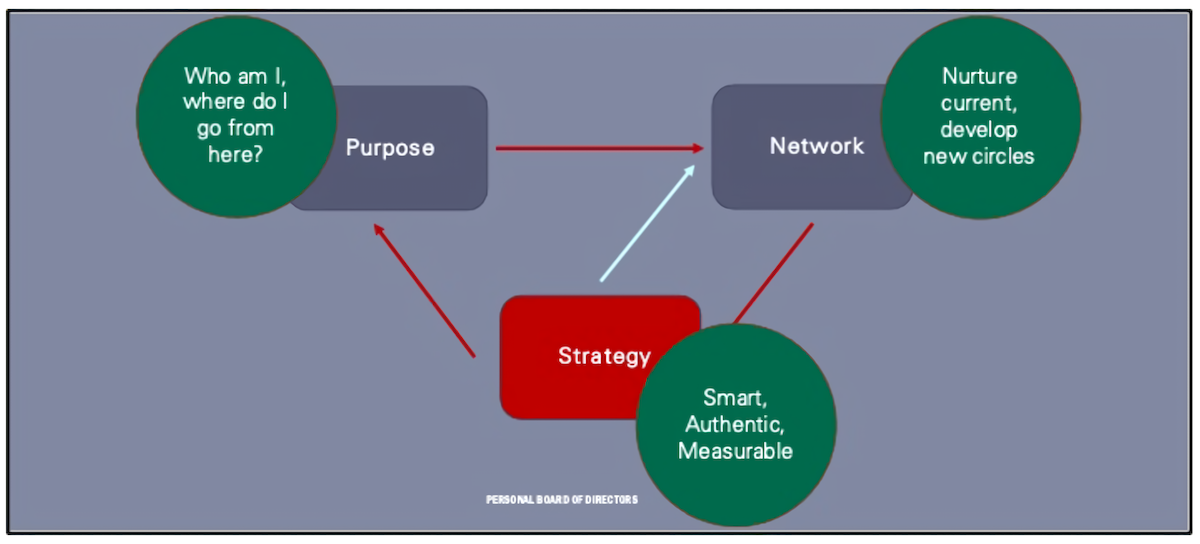California Management Review
California Management Review is a premier professional management journal for practitioners published at UC Berkeley Haas School of Business.
Noah Askin and Cor Dubois

Image Credit | wiesel
Critical professional decisions are often kept close to the vest, particularly once people are further along in their career. A book on career transitions, a webinar offered by someone who has discovered her purpose, and a brief bit of self-reflection seems to suffice for many as a means of making what is nearly always a significant life decision. Others’ perspectives and feedback are rarely sought, and if they are, it is not often done in a systematic way.
“A Stitch in Time Saves Nine: Leveraging Networks to Reduce the Costs of Turnover” by Gary Ballinger, Elizabeth Craig, Rob Cross, & Peter Gray
“Coach McKeever: Unorthodox Leadership Lessons from the Pool” by Holly A. Schroth
With nearly half the workforce in many industries looking for new jobs—often due to lack of advancement opportunities—the isolated decision making seems short-sighted. Layer on newly developed preferences around remote work, considerations for dualcareer couples, and concerns about preparedness for the role of AI in the workplace, and it is clear that people are in more need of career advice and support than ever.
While individual mentors are great, a Personal Board of Directors (PBOD) offers a broader, more balanced, strategic, and structured approach to help respond to major professional questions and the different network-related concerns that arise across a career.
With increasing physical and psychological disconnections between people and their work, our experience—following the lead of others—suggests tremendous benefit from the creation of a diverse group of 4-7 “board members.” These are invested but largely disinterested mentors, advisors, and other sounding boards who will remain relatively constant across the twists and turns of your career. A PBOD should be comprised of people who are familiar with you from different life stages and career circumstances, including former or current colleagues, bosses, mentors, coaches, peers, advisors, classmates, and professors. But at which career stage should you build one, and whom to choose?
In surveys and workshops, we have observed that even when people are generally happy with their careers, many remain eager to move on professionally. Regardless of where you are along your career path, there is likely a steady stream of serious questions and complex situations that can be well-served by engaging with a PBOD.
Each phase of your career presents different challenges and considerations. In the figure below, we have broken them down into rough age ranges based on the kinds of questions people are typically pondering during each phase. Note the box covering late-20s through mid-50s, which is the range in which a PBOD can be most beneficial, though its utility extends through your whole career.

In the exploratory/establishment stage, the the most common theme of career questions is “help me navigate.” The average 28-year old does this alone or with friends. In the mid-career stage, the burning need is to “help me to perform.” Here, when people don’t try to solve this on their own, we typically see informal guidance sought from peers, company leaders, or some kind of management training. Finally, in the mid-to-late career stage, the main concern is a desire “help me transition.” Here support is mainly given by experts, singular mentors, and thought leaders.
In each phase, we have seen people benefit greatly from a more structured approach to figuring out what they want to do, or who they want to be (next). The key is understanding what kinds of questions to ask given the career stage, and what kind of feedback will be most beneficial. A more structured and thoughtful approach is likely to generate better options and yield better decisions.
A structured approach can help identify the right people and roles to include on your board. That is why we developed a PBOD framework anchored in three pillars: Purpose, Network, and Strategy.

First, like most relationships, building your PBOD begins with you—but it does not stop there. A rough understanding of who you are, your strengths, and your purpose, will make building and engaging with your Board more beneficial. This is the Purpose pillar, and while many conduct this mental exercise, the difficulty is bringing it to others for stress testing and feedback. In particular, it helps identify whom you should include on your board, in addition to providing a starting place for your discussions with them.
Second, it is well established that your network is your most important asset. However, many often struggle to identify the key players in their network, and how they might engage them in mutually beneficial ways. Moreover, research has long shown that weak ties—our acquaintances and friends of friends—are much more likely to be helpful in providing information about job opportunities. They also view us differently from close friends and family members, enabling us to more easily reinvent ourselves. So, while optimizing your network is essential, expanding it is even more so. Giving careful thought to both your current network and its shortcomings is the second pillar for considering the composition of a PBOD.
Lastly, a structured, strategic approach—rather than simply latching onto the individuals who are most willing to give you some of their time—will generate better outcomes for the CEO (that’s you). By strategic, we mean thinking through the different pieces of yourself, your career, and your aspirations to collect a group of people who will help with your development across all facets of your identity.
Below, we describe some of the profiles of the kinds of people to include on a PBOD. By considering your Purpose, your Network needs, and the Strategic approach you want to take, then weighing that against the profiles, your Board becomes an assembly of individuals chosen based on thoughtful reflection about your current situation and where you would like to go next.
Your Board should provide you with candid, open, and honest feedback as you navigate your personal and professional journey. Each of the 4-7 members play a specific role that, when combined with the other roles, creates a well-balanced team. We have found the most helpful Boards possess some combination of the following profiles:
While your needs will change depending on current challenges and aspirations, there is no substitute for genuine trust and deep personal knowledge. Limiting turnover, while acknowledging that membership is not set in stone, is beneficial for the Board members and for you. If you maintain regular pacing—regardless of whether you are formally convening your PBOD quarterly or connecting individually when the need arises—it will surely reap rewards.
As one aspiring executive we spoke with noted, “people are much more willing to help and give advice than I anticipated.”
 Insight
Anindo Bhattacharjee et al.
Insight
Anindo Bhattacharjee et al.
 Insight
Shaun West et al.
Insight
Shaun West et al.